How strong are magnets?
A simple answer to the strength of magnets is:
- Neodymium magnets are very strong.
- Ferrite magnets are less strong.
However, it's not quite that simple. Apart from different types of magnets, size and density also play significant roles in determining a magnet's strength.
The larger and thicker a magnet is, the stronger it becomes. However, you can't just keep doubling the strength indefinitely: as soon as the dimensions for width and height match (e.g., 10x10 or 20x20 mm.), the doubling of strength ceases. This also applies when combining several magnets of the same density. This is best explained with an example using magnets with N45 values:
- A 10x10 mm magnet has a strength of 3.9 kg.
- A 10x20 mm magnet has a strength of 4.4 kg.
In other words, there’s a kind of 'strength limit' reached when the height exceeds the diameter/width of the magnet.
The two different types of magnets have distinct capabilities. For instance, ferrite magnets perform better in heat, while neodymium magnets are better suited for cold environments. However, it takes a very small magnet to achieve a very high strength when choosing neodymium magnets (power magnets).
Are extremely strong magnets required?
To create some very strong permanent magnets (permanent meaning they don’t require electricity to function), neodymium is the go-to magnet. Neodymium magnets can carry their own weight up to over 1000 times its own weight. For example, a 2x1 mm magnet weighs less than 0.01 grams, while it can carry 130 grams - so the larger the neodymium magnet, the more extraordinary the strength.
But density also plays a part: the higher the N-value of the magnet, the stronger it is. This means you can have two magnets of the same size, but if one has a much higher N-value than the other, there can be a strength difference of several kilograms even on a 20 mm diameter magnet.
Does strength really matter?
As mentioned, it depends on the size when it comes to how strong magnets are, and very strong ferrite magnets can be made - but they will be large and heavy. So, it's crucial to determine whether you need a magnet as small and strong as possible, or if the price is the overriding factor. Because ferrite magnets are certainly not bad magnets, even though they are not as strong.
This is best explained with a comparison... continue reading below
Comparing magnets
Our favourite comparison is to pit a 10x10 mm ferrite magnet against a 10x10 mm neodymium magnet.
Neodymium clearly wins in strength, with a staggering 3.9 kg compared with ferrite's 0.4 kg. That's a quite a difference in strength for two magnets of the same size. However, they serve different purposes, and if the powerful strength is not necessary, you can save quite a bit by opting for ferrite magnets instead.
Related products - How strong are magnets?
-
Power magnet, Cube 7x7x7 mm.
MAGZ-122-P
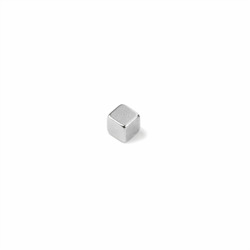
Strength 1.6 kg. 1,84 2,30 EUR
In stock -
Power magnet, Disc 4x2 mm.
MAGZ-059-P

Strength 420 g. 0,88 1,10 EUR
In stock -
Power magnet, Disc 8x4 mm.
MAGZ-182-P
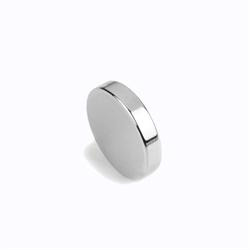
Strength 1.4 kg. 1,60 2,00 EUR
In stock -
Power magnet, Disc 12x10 mm.
MAGZ-410-P
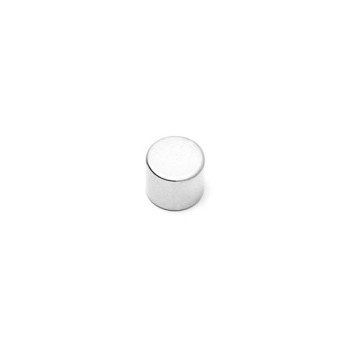
Strength 5.3 kg. 4,00 5,00 EUR
In stock -
Power magnet, Ring 10x4x4 mm.
MAGZ-497-P
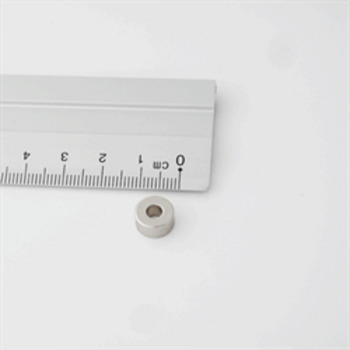
Strength 1.6 kg. 2,68 3,35 EUR
In stock -
Rubber magnet w. threaded stud, Ø22 mm.
MAGZ-1410-U
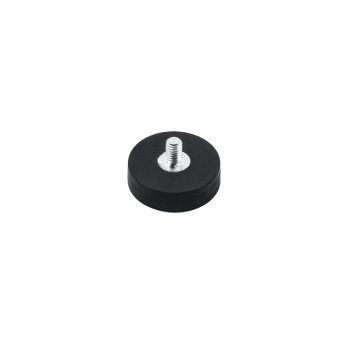
Strength 5.9 kg. 5,90 7,38 EUR
In stock -
Power magnet, Block 12x5x3 mm.
MAGZ-434-P
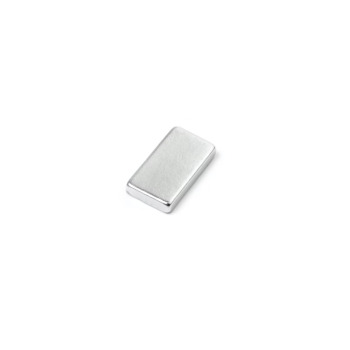
Strength 1.6 kg. 1,72 2,15 EUR
In stock -
Countersunk magnet 80x20x4 mm. (neodymium)
MAGZ-168-P
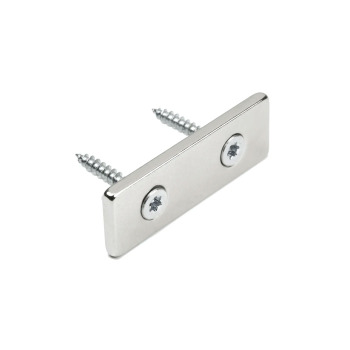
Strength 18.0 kg. 11,28 14,10 EUR
In stock -
Power magnet, Block 20x20x3 mm.
MAGZ-103-P
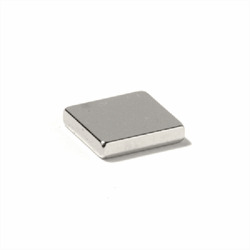
Strength 4.2 kg. 4,40 5,50 EUR
In stock -
Power magnets, Disc 10x1 mm w/glue, 10 pack
MAGZ-501-P
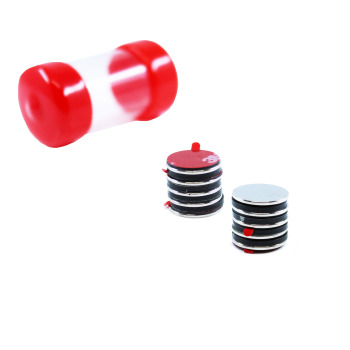
Strength 500 g. 9,24 11,55 EUR
In stock -
Power magnets, Disc 20x1 mm w/glue, 10 pack
MAGZ-503-P
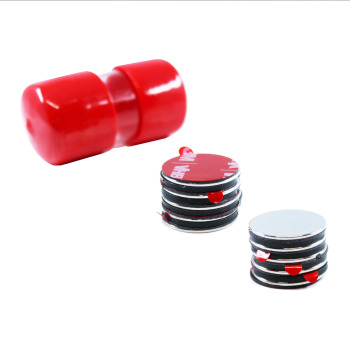
Strength 1.0 kg. 15,60 19,50 EUR
In stock -
Power magnet, Disc 8x5 mm.
MAGZ-129-P
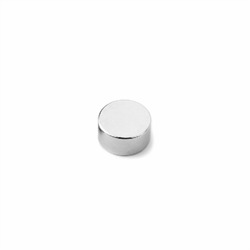
Strength 2.0 kg. 1,72 2,15 EUR
In stock -
Power magnets, Block 10x10x1 mm. w/glue, 10-pack
MAGZ-719-P
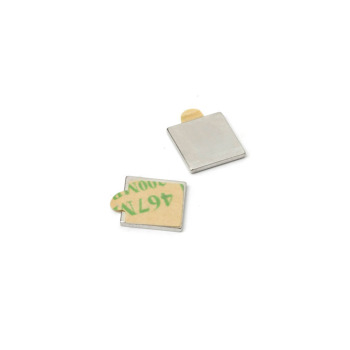
Strength 500 g. 9,24 11,55 EUR
In stock -
Power magnet, Block 20x20x10 mm.
MAGZ-147-P
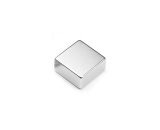
Strength 12.0 kg. 7,76 9,70 EUR
In stock -
Power magnet, Disc 5x3 mm., Gold
MAGZ-4004-G
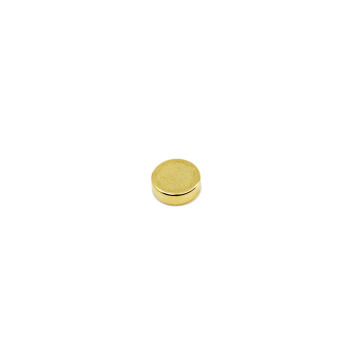
Strength 700 g. 1,20 1,50 EUR
In stock -
Rubber magnet w. threaded stud, Ø31 mm.
MAGZ-1411-U
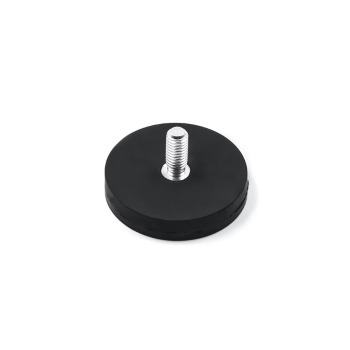
Strength 8.0 kg. 6,24 7,80 EUR
Out of stock
If you have any other questions, feel free to browse through our FAQ or contact our support team at standard officehours.